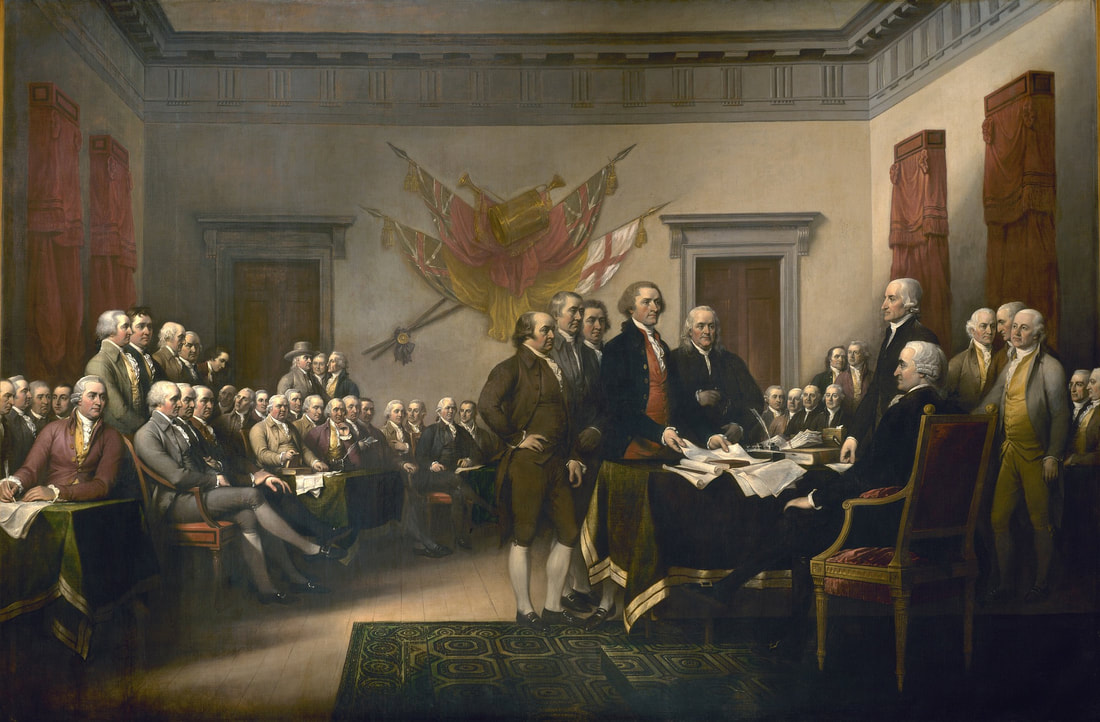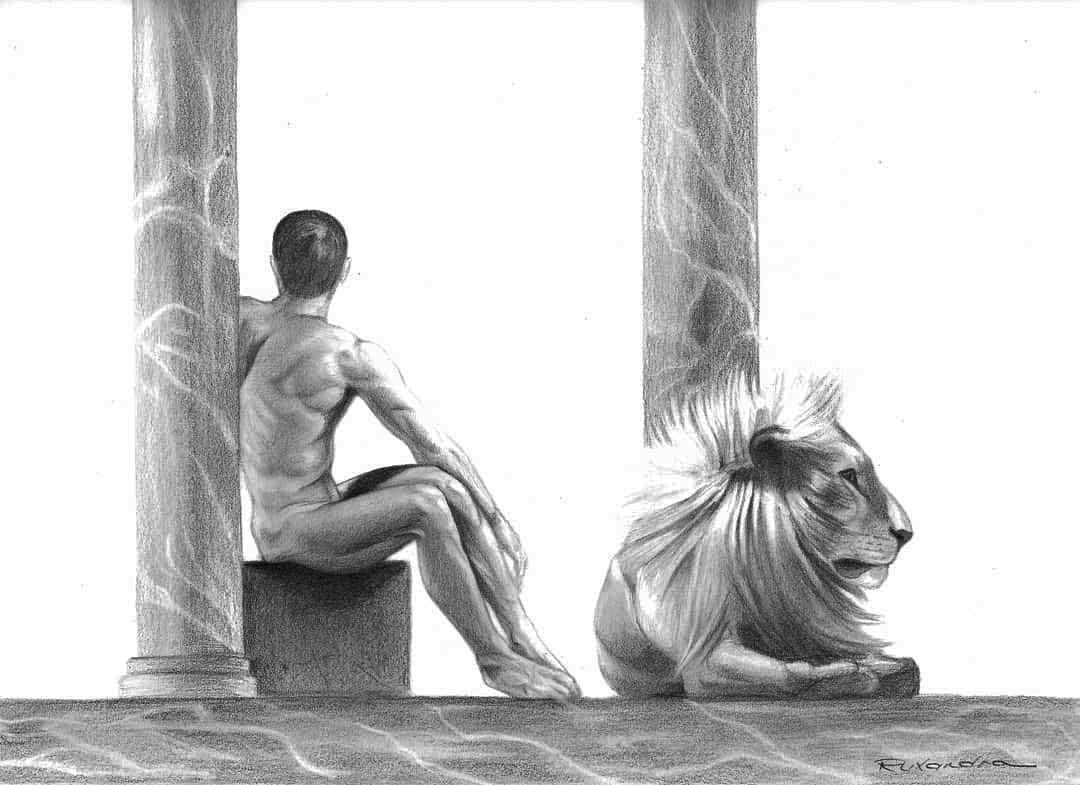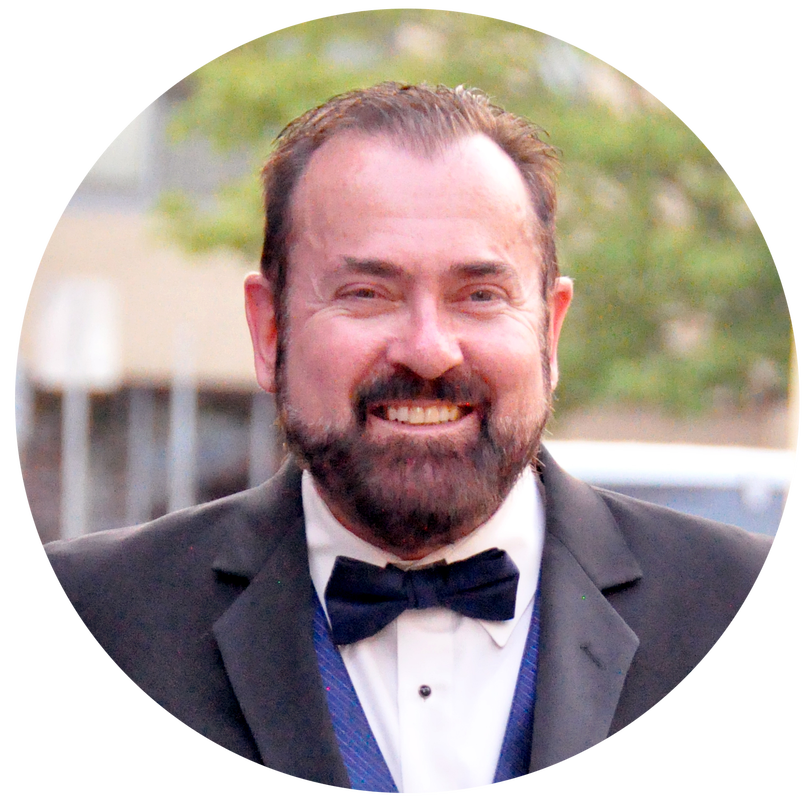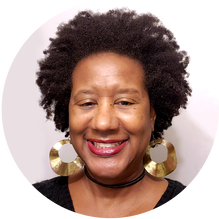|
By Ruxandra Ionce | TRINICY.org | The Christian Imperative Image by WikiImages AbstractThe present paper is the second in a threefold series of essays entitled “The Christian Imperative” and continues the line of argumentation on the importance of Christianity as the only objective moral basis for the rule of law and basic human rights and freedoms. These essays are by no means exhaustive regarding the subject chosen; rather they are meant to raise the reader’s interest and curiosity in pursuing further study and gaining confidence, knowing the richness of resources available. Basic Human Rights & FreedomsAs presented in the previous essay, it is necessary to assume the pre-existence of natural laws or a priori laws that transcend our existence and are therefore universal and unchangeable. These laws originate from our God-given conscience and are common to all mankind, regardless of our individual circumstances of birth, culture and time, but are overshadowed by our sinful nature. The acknowledgment of such laws is the only means of defense against arbitrary power and tyranny. However, understanding equality under the law requires another, more important question to be answered: “what is man?”. This is arguably the most important question in the history of mankind, since the answer implies the origins of our values, individual dignity and inner worth, for which we all crave for. It is imperative to have an objective basis for human rights in order for them to stand as moral rights. This question is answered in the very first chapter of the Bible, in Genesis 1:26 and 27. “Then God said, 'Let us make man in our image, after our likeness' (v. 26) “So God created man in his own image, in the image of God he created him; male and female he created them” (v. 27) There is no clearer and more powerful alternative to this answer: man is created to be a reflection of his creator, and hence to possess dignity and free will. It is important to note that individual dignity and sacredness do not come from within, but are given by God himself and impossible to obtain by human endeavor. This logic is very important, since it puts Christianity in stark contrast to all other alternative cosmogonic views, where salvation and meaning are to be found within or by works performed by man himself; to violate human dignity is to revolt against God. A famous Romanian actor and devout Orthodox Christian, Dan Puric, has subsumed this issue brilliantly, saying that “human dignity is the reflection of man in man, whereas godly dignity is the reflection of God in man”. The first assumption is dangerous, since the objectivity of human dignity cannot be proven nor measured and is therefore volatile and relative to culture, interests and preferences. Many important philosophers such as Immanuel Kant have claimed the origin of human rights to be in the properties of human reason. Kant's idea of human rights was a reflection of the Enlightenment Zeitgeist. The proponents of the Enlightenment have erroneously presumed that natural rights, moral freedoms and human dignity were a priori conditions of human existence. Unfortunately, these rights were misused during the French revolution, when the monarchy was usurped with the same brutality the masses claimed to have endured. The change of regime after the French revolution costed many lives and contradicted the very principles that animated it. To present our case, we need to follow the logic that the question of natural law is intimately connected with the question of human identity and origins. Human rights and freedoms require an answer to the question “what is man, to be worth these rights?”. As Sir Roger Scruton points in his book The Soul of the World: “freedom raises a question of origins, not an exercise of rational choice." This is why it is important to understand that the Bible's unique and dissonant answer compared to any other alternative view is the only practical, objective basis for the ontology of human rights, as also proven by the historical record. Moreover, the legal difficulties emerging are only to be settled with an objective moral framework that would put limits on freedoms and rights, otherwise an unlimited freedom will eventually interfere with that of the other. Similar to the previously presented approaches in the ontology of law, there also have been several attempts to explain the ontology of human rights in mere secular terms. Two of these approaches are:
The criticism brought to these theories is justified. Moral relativism poses a continuous threat: if there is no objective basis for human rights, there is no objective reason not to change them according to various interests and cultural influences. Moreover, it is impossible to argue for human rights based on reason alone, since we lack the knowledge of their origin and what makes human beings universally worthy of such claims; it is logically necessary to have a metaphysical base and a higher truth that has been already revealed: the Bible. I am very certain that our readers are more than aware of the “classic” accusations brought against Christianity, two of which being most prevalent: the Spanish Inquisition and the Crusades. However, these arguments can easily be used confidently by any believer to show what it means when people are ignorant of the Scriptures and make up their own religion. The real question is “how did real, scriptural Christianity influence the course of history?” and the answer is absolutely overwhelming. Due to the nature of this short essay, it is impossible to even scratch the surface of this vast subject so it will be limited to just a few interesting examples to prove that the modern notion of human rights and freedoms stems from the Christian understanding of man's divine dignity. It is important to be reminded of the fact that these short essays are primarily thought to offer some intriguing facts and stimulate the reader's curiosity and desire for further study. As mentioned in the previous essay, the Ancient world did not have an understanding of human rights. Before Christianity, the notion of individual rights did not exist, as the individual in the social hierarchy did not benefit from legal recognition, and, hence, did not enjoy special protection. In Roman law (a legal source for Western law) for instance, legal protection was only granted by the Roman state to the social institution of the patriarchal family, where the pater familias (the oldest man in the family) exercised autocratic authority over all members of the family. Christianity proved itself to be the only religion in history that elevated human dignity to a position of sacredness, which flows out of man's identity as a bearer of the image of God and the commandment, reinforced by Jesus Christ “[...] Love your neighbour as you love yourself'” (Mark 12:31). The history of the Early Church is one of the most fascinating periods in history through the modern perspective of human rights, especially for women. The cultural background in the time of Jesus was characterized by a deeply anti-woman worldview, common throughout the Roman empire. In the book “The Jesus I never knew”, author Philip Yancey comments: “For women and other oppressed people, Jesus turned upside down the accepted wisdom of His day. According to biblical scholar Walter Wink, Jesus violated the mores of his time in every single encounter with women recorded in the four Gospels.” In the following lines, I would like to mention a few of the many milestones in the history of Christianity in regards to human rights: I. The Magna Charta Libertatum - This treatise on law and justice is one of the earliest, most comprehensive legal acts that not only postulates the rule of law and equality under it for all including the sovereign, but also liberties of “free men”, a clause which became the foundation for modern human rights in Anglo-Saxon jurisprudence. It is generally accepted that the draft was originally drafted by Stephen Langton, who was appointed at the time See of Canterbury. According to the Australian legal scholar, Dr. Augusto Zimmermann, Archbishop Langton was “a learned theologian and his massive commentaries on the Bible contain thousands of pages of explanation about the meaning of scriptural words and phrases. He applied his knowledge of biblical hermeneutics to draw modern parallels between England and the Old Testament stories of good kings and bad kings who abused their powers by violating God’s laws.” II. The Eastern Roman Empire - Unfortunately not as popular in general history studies, the Eastern Roman Empire, known also under the modern name of the Byzantine Empire, was the longest-lasting empire in history. Christianity became state religion and everybody, regardless of ethnical background was recognized as a citizen of the Empire as long as they shared the Christian belief. According to professor Anthony Kaldellis, it functioned more like a Republic, where people had much more influence on the political process than previously and erroneously thought by many Western historians, and the common good of the people was often decisive in overthrowing an emperor. Women could have great power, the example of Theodora, the former actress who became an empress by marrying Justinian and had a tremendous influence on the many reforms made during their reign. Justinian himself, was a peasant’s son who was later taken under the wing of his uncle, Emperor Justin I ( a former swineherd and soldier) and grew to be one of the greatest emperors, especially known for legal contributions through the Code of Justinian III. The Declaration of Independence - “We hold these truths as self-evident that all men are created equal, that they are endowed by their Creator with certain inalienable Rights, that among these are Life, Liberty and the pursuit of Happiness”. This is one of the most important moments in the history of human rights, pointing out both to the inherent, self-evident rights but also to their divine origin, thus implying an objective moral basis. IV. Abolition of Slavery - The abolition of slavery could only be done based on the premise that all men are equal and created in the image of God. Although this achievement was the result of the combined forces of many (see the African abolitionists Olaudah Equiano, Quobah Ottobah Cuguano, Ignatius Sancho, Mary Prince etc.), the voice of William Wilberforce became instrumental in the movement, as he was convinced that what he was doing was a service and a duty to God. V. The world after the two World Wars and the U.N. Declaration of Human Rights - The most devastating armed conflicts in human history, the two world wars, have shocked the world by their unprecedented gruesomeness and destructive ideologies. These ideologies (national socialism and communism) are a direct result of a systematic, oppressive pursuit to deny the existence of God in all aspects of a citizen’s life . A natural, immediate response was to reinstate the protection of the dignity of human beings. The Universal Declaration of Human Rights was adopted in the UN General Assembly on the 10th of December 1948 and stated in the first article: “All humans are born free and equal in dignity and rights. They are endowed with reason and conscience and should act towards one another in a spirit of brotherhood.” The Universal Declaration of Human Rights has been developed through other documents such as the European Convention of Human Rights and Fundamental Freedoms, the International Covenant on Economic, Social and Cultural Rights etc. In comparison to the classical rights that extended only to the realm of security, property and political participation, the modern concept of human rights (also known as the “second generation” of human rights) now includes socio-economic rights, rights to welfare, education etc. The problem with modern human rights is that they lack an objective moral basis, making any epistemological criticism about their universality and objectivity perfectly justified. Unlike the Declaration of Independence, where the divine source of these inherent rights was recognized, the modern conception of human rights and freedoms relies on the shaky foundation of secularism. According to Daniel Philpott (Professor of Political Science and Peace Studies. Director of the Center for Civil and Human Rights, University of Notre-Dame), human rights are only valid when these three criteria are met:
As mentioned in the previous essay, one cannot expect to enjoy inalienable rights and equality in front of the law if there is no objective moral basis and a transcendent source of human dignity. The rejection of a Creator, who made man in His own image, leaves an empty space that can be filled with any transient philosophy, often based on selfish interests, racist superiority, pseudo-scientific arguments and thirst for power. “There is neither Jew nor Greek,there is neither slave or free, there is neither male nor female; for you are all one in Christ Jesus” - Galatians 3:26-8 Christianity offers the only complete answer to the question of human identity, dignity and meaning; it also affirms at the same time the limitations of our own endeavours and capacity to understand ourselves and the universe around us. We all have in ourselves the longing for eternity and redemption, no matter how subtle or tacit. Christianity offers the only solution: salvation comes in the ultimate form of sacrifice from God Himself, by sending His only begotten Son to carry our sins and pray for our transgressions in full, for this is exactly what it was required to restore our Edenic innocence and bring us the future glory of Heaven. In the next essay, we will explore the subject of civil authorities and their role in protecting these rights, as their governing over our society requires a guarantor. Surprisingly, the Bible covers the issue in a comprehensive, critical manner and offer clear guidelines of conduct in respect to authorities. Suggested Literature & ResourcesKaldellēs Antōnios Emm. The Byzantine Republic: People and Power in New Rome. Harvard Univ. Press, 2015. Moon, Sheryl, and Philip Yancey. The Jesus I Never Knew. Zondervan, 1998. Moyn, Samuel. Christian Human Rights. University of Pennsylvania Press, 2015. Zimmermann, Augusto. “The Christian Foundations of the Rule of Law in the West: a Legacy of Liberty and Resistance against Tyranny.” Creation.com, Creation Ministries International, Aug. 2005, creation.com/the-christian-foundations-of-the-rule-of-law-in-the-west-a-legacy-of-liberty-and-resistance-against-tyranny.
0 Comments
"Peace of Mind" by Ruxandra Ionce ARTIST'S STATEMENTThe morning after Daniel was thrown into the lions' den for not obeying a decree to worship a human god and worshiping the one, true God anyway, King Darius rushed to him and called for his name in the hope he would still be alive. Daniel answered: “May the king live forever! My God sent His angel, and He shut the mouths of the lions. They have not hurt me, because I was found innocent in His sight. Nor have I ever done any wrong before you, Your Majesty” (Daniel 6:21-22). In our everyday life we are surrounded by lions: persecution, opposition, sickness, insecurity, worries, doubts, fears - just to name a few. These lions oftentimes frighten us by mere sight, not because they attack us. We all worry over life's "what ifs" as it lies deep in our human nature to always assume the worse and fear not that which is reality but what our imagination produces. Many neuroscientists today claim that fear is a learned behavior, something we are not born with but, unfortunately, acquire throughout our growing years. Fear is not natural for the Christian. It is true that fear plays an important role in keeping us away from danger and acting in a preservative manner. However it is not a place of residence. The perfect love of our Father casts out fear (1 John 4:18), and allows our minds to be filled with a peace that transcends all reason (Philippians 4:7). If we trust God's promises for us, we will finally be able to see that God is in complete control of the lions in our dens and we can have rest while enjoying the gift of life. The lions will always be around, but most of them may be tamed and may not even care about our presence. Our Heavenly Father is always in control! YOUR TURNDoes this illustration resonate with you as a conservative Christian? What den has life presently thrown you into? Which lions do you see surrounding you? Do you take comfort in the fact that there is a Greater Lion in the den with you and within you? One who can shut up the mouths of other, lesser, earthly lions and deliver you to safety?
By Thomas Torres | TRINICY.org FOUNDATIONAL QUESTIONS TRINICY: What spiritual habits and disciplines do you follow on a daily basis? THOMAS: I try to give the Lord the first and last 30 to 60 minutes of each day. I also try to read the Bible completely at least once each year. TRINICY: Out of all God’s attributes, which one amazes you most? Why? THOMAS: I am amazed the most by God’s love and sacrifice for us since He loves us so much He sacrificed His only Son for our salvation. TRINICY: Who led you to Christ? Who are you leading or hope to lead to Christ? THOMAS: My grandmother first taught me about Jesus when I was 3 years old. But my main inspiration came from my wife. When we were first friends, she taught me more about the Bible than I had learned in Catholic Churches. She also taught me about the salvation prayer and its importance in being saved. TRINICY: What primary talents and gift(s) has God given you? How are you using them for the kingdom? THOMAS: My primary talent is to serve others, which I try to do when I can. I also believe in servant leadership when it comes to leading people at work. TRINICY: Which person from the Bible do you resonate with the most? Why? THOMAS: I admire King David the most in the Bible because of his faith and humbleness to the Lord. TRINICY: What social issue do you care most about? Why? THOMAS: I care about abortion the most since it is the murder of innocent, helpless babies. TRINICY-RELATED QUESTIONS TRINICY: What does being a Christian mean to you? Why Are you a Christian? THOMAS: For myself, being a Christian means to follow Jesus completely and to not let any worldly desires take precedence over Him. It means putting Him first in my life and to grow constantly in my faith. TRINICY: What does being a Conservative mean to you? Why Are you a Conservative? THOMAS: For myself, being a conservative means to hold onto traditional and moral values and not let the liberal attitudes of the world influence me. TRINICY: What has your experience been like as a Conservative Christian on and/or off campus? THOMAS: I’ve noticed there are very few true Christians out there in the workforce. Many say they are Christians, but they quickly jump on the liberal bandwagon in many issues. TRINICY: What were your first thoughts when you heard about TRINICY? THOMAS: I think TRINICY is awesome especially since the majority of schools try to indoctrinate their students against God. TRINICY helps these students to find allies with the same Christian believers as themselves. TRINICY: What book(s) do you recommend conservative Christians read to help strengthen their faith in a secular and/or liberal setting? THOMAS: The main book to read is the Bible to help conservative Christians strengthen their faith. Secondary are books from Dr. Robert Jeffress, especially Not All Roads Lead to Heaven and his new book Courageous: 10 Strategies for Thriving in a Hostile World. TRINICY: What advice or resource would you offer to fellow conservative Christians today? THOMAS: I would advise conservative Christians to not be ashamed of their faith. Be bold like Daniel in the Bible. OTHER QUESTIONS TRINICY: What is an interesting/unusual fact most people don’t know about you? THOMAS: Most people (besides family and close friends) don’t know much of my time in the military. Most people assume I was a pharmacist in the military. But instead, I was an Army Ranger during the 1980’s and was deployed to many parts of the world like Honduras, Nicaragua, El Salvador, Lebanon, Syria, etc. TRINICY: What passion or dream keeps you up at night or wakes you up in the morning? THOMAS: My dream that keeps me awake at night or wakes me up in the morning is for every member of our family to follow Jesus completely. TRINICY: If Jesus were physically here now, what would you want to ask Him or talk about? THOMAS: I don’t think I would have the courage to ask Jesus anything, let alone look at Him if He was here in front of me. He is my Lord and I am not even worthy to shine His shoes. But I would hold onto him tightly as a child holds on to their parent’s legs and not let Him go. TRINICY: What are the three greatest life lessons you’ve learned thus far? THOMAS: The 3 greatest lessons I have learned so far is that 1. Faith and prayer are important for any problems we encounter in life. 2. Most people give up mentally before reaching their goals even though their goal is within their reach. 3. The truth always comes out. TRINICY: Which Christian song best connects with you? THOMAS: I have 3 songs that I connect with. “Dear Younger Me”, and “I Can Only Imagine” and “Burn the Ships.” TRINICY: What legacy do you want to leave as a Christian? THOMAS: My greatest legacy I would like to have as a Christian is to help lead many people to Christ (either at work or people I meet). TRINICY: Which teacher has impacted you most? How? THOMAS: The teacher that influenced me the most was my college organic chemistry teacher since he was able to teach a very difficult subject with ease. TRINICY: What is your life verse? Why? THOMAS: My life verse is from Psalm 23: ”The Lord is my Shepherd and I shall not want” since it shows that no matter what happens in our lives, we will always have the Lord and that is all that we really need. Everything else is secondary to this. TRINICY: Which world events have influenced, changed, or shaped your life? THOMAS: The world events that helped influence me the most was 1. The election of President Ronald Reagan, since it showed me how to be more patriotic. 2. The breaking down of the Berlin Wall, since it showed me that peace could be possible in this world even when almost all hope is lost. 3. The invention of the computer and internet since it put knowledge at our fingertips. TRINICY: What is the most difficult thing for you about being a Christian? THOMAS: The most difficult thing about being a Christian is to know that we are always being watched by “baby Christians” and non-Christians. So it helps to always conduct myself as if Jesus is right next to me. TRINICY: What, thus far, has been your greatest "praise report"? THOMAS: I have many praise reports but one of the greatest ones I have is when my previous pharmacy was closing down and everyone was scrambling for jobs. I prayed and the Lord told me not to worry and He would find the job for me. Everyone at work was laughing at me when we had less than 2 weeks to go and I still had no job. But I had faith and waited. With less than 2 weeks to go, a district manager from Walgreens happened to drive by and saw our closing sign. He was from a different district so he rarely drives to where I was working. He came inside and offered me a job without even knowing me. Another major praise report is when I was in my mid-30’s. I was told I had a heart problem and wouldn’t live past the late 50’s. I was also told that in my early 50’s I would start having major heart problems. When my blood pressure started going very high when I was 52 or 53, I assumed this was the beginning of the end. My doctor told me they would have to do an operation on my heart but first they must do a stress test. My wife (who was my fiancé then prayed for me and said I would be ok). After the stress test, the doctor said there must be a mistake since my heart is as healthy as an 18 year old man and I had no problems (even though the previous exams showed otherwise). Praise the Lord. WE WOULD LOVE TO FEATURE MORE CONSERVATIVE CHRISTIANS ON TRINICY.If you know of other conservative Christians on or off campus we could feature, please email us at [email protected].
By E.J. Cox | TRINICY.org | Volume I Issue II
My Brothers and Sisters, the Spirit has put it on my heart to address the first, and perhaps most insidious, of the devil’s weapons that has been used against the church. This is a weapon that many of the church, myself included, have fallen victim to over the years. It is my recommendation that if any reader has young, impressionable children that may read this address, to kindly keep this issue of Onward Christian Soldiers from their eyes until they have reached a proper age to understand the content of this issue. It is my belief that the only way to truly combat any weapon is to be able to talk plainly about said weapon in order to more logically understand and combat its intended devastating effects. While this will not be a vulgar analysis, I will not overly censor the nature of the topic. That weapon which I wish to address is pornography. This weapon is of supreme danger to the life of a Believer. At the present time, estimates suggest that between 60-80% of men in the church, across denominations, are struggling with some form of pornography addiction. Pornography, as defined by dictionary.com, is “sexually explicit videos, photographs, writings, or the like, whose purpose is to elicit sexual arousal.” At one time this material was relatively difficult to find in that it had to be purchased in physical copies from shops that had a social stigma already associated with them. However, the devil has developed this weapon to be much more potent as technology and the internet have made information so quick to procure and so easy to hide. A person can be on a pornographic website within 10 seconds using their smartphone or computer, consume the content, and, when they are done, clear their search history, effectively removing the “evidence” of their activity. It enables a person to live a double life wherein they may live an outwardly positive life, but inside, they are being eaten up with this cancerous spirit. In recent years, pornography has taken a decidedly darker turn. This new access to online pornography fuels a habit that is comparable to illicit drug use. The brain pathways that excessive internet pornography use create are like those found in addicts of such drugs as methamphetamine. These pathways, once formed, dull the mind to explicit images. This makes the porn-addicted mind seek out more violent and hardcore depictions of intercourse. A person who would have previously been greatly disturbed and disgusted by such images then becomes numb to the material. Pornography addiction creates severe and extreme bouts of depression, anxiety, loss of self-worth, and ultimately deep and dark feelings of loneliness. Additionally, this weapon is the greatest consumer of modern-day slavery and sex trafficking, which has resulted in there being more slaves in the U.S. than before the American Civil War. Obviously, to us as Christians, we should be concerned about this weapon. Those of you who are students and teachers in high schools or colleges around the world have seen the effects of this weapon on your classmates and students. The loss of empathy, the illicit sexual relationships as people live out what pornography has programmed into them, in fact the complete inability to have healthy relationships is evidence of this weapon’s power. There is no doubt in my mind that it is one source of the growing LGBT sickness in the West. It is the propaganda arm of the over-sexualization of our cultures. YOU MUST GUARD YOUR HEARTS! GUARD THE HEARTS OF YOUR CHILDREN! The enemy is working as hard as he can to make sure that your children fall into the aim of this weapon. The average age of an American boy’s first exposure to pornography is roughly 6 years old. Once this addiction is started it will take every ounce of strength to throw off its chains. The enemy will attack you with ever increasing bouts of depression, anxiety, and doubt. He will do everything he can to drive you back into the addiction. But the situation is not hopeless my friends! There is good news from the battlefield! Just two months ago, around the world, we came together to celebrate the birth of our Captain! He is the one who has come to set the captives free. He is not only the King of Kings and the Lord of Lords, but He is the Commander of Commanders and the General of Generals. He is the most intelligent, most seasoned, most proven Leader in history. And, He is on our side! He has delivered us from the weapons of the enemy. Isaiah wrote these words: “’ No weapon formed against you shall prosper, And every tongue which rises against you in judgment You shall condemn. This is the heritage of the servants of the LORD, And their righteousness is from Me,’ Says the LORD.” My friends, no matter how dark the night, no matter how fearsome the fire of the enemy, we are on the winning side! No matter how loudly the devil yells in your ears, no matter how far down he drags you, you are never outside the reach of God. You only need look up and pray. He will deliver you! Seeking Help*If you or someone you know is suffering from porn addiction, please find a good Christian Counselor or therapist in your area. The Lord has equipped these people with wonderful talents and skills to destroy this addiction and heal your mind. You CANNOT do it alone. I personally recommend Dr. James Dobson’s Counselor database at https://www.focusonthefamily.com/get-help/counseling-services-and-referrals/. This is a very trusted and rock-solid Christian organization who will get you in touch with a good Christian counselor.
By Tanya Cooper | TRINICY.org FOUNDATIONAL QUESTIONS TRINICY: What spiritual habits and disciplines do you follow on a daily basis? TANYA: I don't drink coffee, but I have to read my personal devotional or I feel like I'm missing something important. I also utilize one or two additional prayer and/or devotional guides to pray for specific issues concerning my family. TRINICY: Out of all God’s attributes, which one amazes you most? Why? TANYA: God's faithfulness wows me and I believe it's mostly because disappointment, dishonesty, and deceit was so prevalent in my environment as a child, that I have trouble truly believing or trusting anyone. But God (I could actually stop right there.) didn't just deliver me, love me, forgive me, etc. He sticks around to provide all those over and over and over again. Endlessly, because I belong to Him. God made a covenant with King David that if David obeyed all His commands, God would make sure that the Kingdom of David would not end and, wouldn't you know it, for 300+ years despite other rulers after David died disobeying the Word of God, God delivered and remained faithful to David and his descendants. My heart is always wow'd by God's faithfulness to mankind regardless of our frailty, stubbornness, and utter stupidity. TRINICY: Who led you to Christ? Who are you leading or hope to lead to Christ? TANYA: My mom led me to Christ. Yes, led would be the right terminology. She didn't ask me to read the Bible, nor do I remember watching her do it. We didn't pray together except in church, and meals of course. We didn't do quite a bit of the Christian-like activities one is usually involved in. But yes, she led me with her soft spoken words, her change in behavior, her quiet determination to attend church, Bible study or choir rehearsal, no matter what else came up. The persistent but undominating way she encouraged her family to attend church and change their behavior as well. Yes, she led me to Christ by her quiet, unassuming, loving persistence in our home. To be honest, I'm not sure who I'm leading to Christ but I hope everyone I spend time with can see Christ in my actions and words, or a touch, hug or smile. I have a specific heart for women and the homeless community. Those are the people I speak with most often. TRINICY: What primary talents and gift(s) has God given you? How are you using them for the kingdom? TANYA: My primary gift is speaking (I assume it's because I can't quite stop talking) and then writing. Currently, I've been fortunate to be able to facilitate a few sessions at our women's bible study, and began writing a devotional. Occasionally, I also engage in spoken word showings. TRINICY: Which person from the Bible do you resonate with the most? Why? TANYA: Gideon is the person from the Bible I resonate with the most. When his story begins in Judges 6, the Lord finds him hiding and calls Gideon a mighty warrior and tells him that the Lord is with him. Gideon responds to both statements by saying, Pardon me but if You are with us, why are we oppressed? How can I be a mighty warrior when I am the least of the least in my family. THAT'S ME! I questioned how God saw me, how He called me His own, chosen and loved because I was unable to see beyond my circumstances into the future He had prepared for me. Gideon's story continues as he accepts God's call to be a warrior and leader of his clan and defeat their oppressors. I too have accepted what God has called me to be. TRINICY: What social issue do you care most about? Why? TANYA: Poverty and homelessness. My family was poor for most of my upbringing. There is little to no identification with self-esteem, self-worth, confidence or value without access to adequate income, social services, healthcare, education, and safety and that is often the catalyst to self-defeating mindsets and behaviors. God called Gideon a mighty warrior (mind you, not just any ordinary warrior). But Gideon saw himself as worthless. Often, we need help in recognizing who we are and the potential to be used to do and be great things despite our deficiencies. TRINICY-RELATED QUESTIONS TRINICY: What does being a Christian mean to you? Why Are you a Christian? TANYA: Being a Christian means yielding my way to the way of Christ. That includes my thoughts, decisions, actions, language...everything. It means that all I am belong to Him. I am a Christian because He drew me near enough for me to feel that something in my life was missing and that He was the only one who could fill the void. I became a Christian as a teenager and didn't really understand what all of being a Christian entailed but I knew the Holy Spirit's voice when I heard Him speaking to my heart. True to form, I didn't yield my heart to Him right away but true to form, He never stopped wooing me. My beloved spoke and said to me, “Arise, my darling, my beautiful one, come with me." Song of Solomon 2. TRINICY: What does being a Conservative mean to you? Why Are you a Conservative? TANYA: Being a conservative is not a political bent for me. To me it's a way of thinking and living according to traditional social and Christian values. I'm a conservative because it leans more toward the values and principles I believe in and live by stemming from the Bible. TRINICY: What were your first thoughts when you heard about TRINICY? TANYA: Incredible. I was so impressed by the vast array of featured quotes and comments from people from all ages and stages of life. I was also surprised by its open forum that encouraged comments and lively yet respectful stimulating discussions among all walks of life. TRINICY: What book(s) do you recommend conservative Christians read to help strengthen their faith in a secular and/or liberal setting? TANYA: All Christians should begin by reading the Bible in whatever form is easiest to strengthen their faith. The stories in the Bible speak to real life circumstances both then and now because the people, the places, and the hardships were real. It's the best reality show ever. But I also think all people (not just Christians or conservative Christians) should read anything they can get their hands on. To quote the largest children's literacy organization, RIF, "reading is fundamental." When we read, we engage, we think, we ponder, we question, we debate. The more varied the subject matter, the wider your engagement, questioning, etc. TRINICY: What advice or resource would you offer to fellow conservative Christians today? TANYA: Our mightiest resource is prayer. We can take it with us wherever we go. No one can stop us from using it and we have unlimited access to unlimited power. OTHER QUESTIONS TRINICY: What is an interesting/unusual fact most people don’t know about you? TANYA: Most people do not know or believe that I get really nervous around a lot of people. The more nervous I get, the more I talk. TRINICY: What passion or dream keeps you up at night or wakes you up in the morning? TANYA: Writing and speaking is my passion. But writing is the one thing that'll wake me up and take me on a journey. TRINICY: If Jesus were physically here now, what would you want to ask Him or talk about? TANYA: I would love for Him to tell me about heaven. TRINICY: What are the three greatest life lessons you’ve learned thus far? TANYA: God knows best (He really does). Trusting God does not mean limits; it means expansion. I'm not in control...of anything. Obedience IS better than sacrifice. TRINICY: Which Christian song best connects with you? TANYA: "Counting Every Blessing" by Rend Collective TRINICY: What legacy do you want to leave as a Christian? TANYA: Perfection isn't necessary or required, but obedience is. TRINICY: Which teacher has impacted you most? How? TANYA: Stacey Knight is a public school teacher and a Bible study teacher. She not only taught the principles of God's Word but she did it with passion (not exuberance), honesty, and transparency. I want to be like her when I grow up. TRINICY: What is your life verse? Why? TANYA: Matthew 6:33. When I thought I was in control of my life, I worried constantly about how to make ends meet, career goals, raising a child, etc. When I read this verse, I accept that I'm not the one in control and by seeking God and His righteousness, I submit to His control over everything. TRINICY: Which world events have influenced, changed, or shaped your life? TANYA: I live near Washington, DC and I think 911 brought to bear a different mindset. It was a devastating ordeal but it also brought to my mind how little control we have and how great God is. By world standards, it was not the greatest tragedy but it was the greatest tragedy the U.S. had been exposed to. But God brought the people of this nation together in prayer and in community regardless of our differences. God's ways and thoughts are not our ways and thoughts and though it's sometimes difficult to conceptualize, His view is so much broader. TRINICY: What is the most difficult thing for you about being a Christian? TANYA: Witnessing is my Achilles heel. I find it to be a difficult activity to engage in. TRINICY: What, thus far, has been your greatest "praise report"? TANYA: My mother and I were both diagnosed with cancer a year apart. Me first, then her. God used that circumstance to not only draw us closer to him but each other. Through the recovery process, we also grew exponentially spiritually and have since broadened our ministry activities. TRINICY: What is a question you wish we had asked but didn't? What is your response to this self-selected question? TANYA: What or who is your biggest influence and why? My daughter. God created her to be the best of her parents without adding the worst of her parents. She has a kind heart, generous spirit, wisdom beyond her years and a beautiful smile you can't buy anywhere. She inspires me daily to be better than I am. WE WOULD LOVE TO FEATURE MORE CONSERVATIVE CHRISTIANS ON TRINICY.If you know of other conservative Christians on or off campus we could feature, please email us at [email protected].
What better way to celebrate Valentine's Day than to consider the elements of what makes love real. For the past few months, TRINICY Contributor David Kowalke has been hard at work on a three-part article series on this very subject. Check out the video teasers, the article outlines, and the link to the full articles below! Pssst... Make sure to scroll to the very end to read a very special dedication message. part i: relational pattern, faith, & freedom
Part 1 Main Points
THE DIVINE BLUEPRINT FOR RELATIONSHIPS (RELATIONAL PATTERN) 1 Corinthians 3:9: “For we are God’s fellow workers; you are God’s field, God’s building.” THE FOUNDATION CALLED “JESUS” (RELATIONAL FAITH) 1 Corinthians 3:11: “For no man can lay a foundation other than the one which is laid, which is Jesus Christ.” WALL #1 CALLED “FORGIVENESS” (RELATIONAL FREEDOM) Ephesians 4:31-32: “Let all bitterness and wrath and anger and clamor and slander be put away from you, along with all malice. Be kind to one another, tender-hearted, forgiving each other, just as God in Christ also has forgiven you.” Read the full Part I article HERE. part iI: relatonal example & balance
Part II Main Points
WALL #2 CALLED “GRACE & TRUTH” (RELATIONAL EXAMPLE) John 1:14: “The Word became flesh and made His dwelling among us. We have seen His glory, the glory of the one and only Son, who came from the Father, full of grace and truth.” WALL #3 CALLED “PRIORITIES” (RELATIONAL BALANCE) Colossians 3:22, 23: “Whatever you do, work at it with all your heart, as working for the Lord, not for human masters, since you know that you will receive an inheritance from the Lord as a reward. It is the Lord Christ you are serving.” Read the full Part II article HERE. part III: relational mandate & success
Part III Main Points
WALL #4 CALLED "AGAPE" (RELATIONAL MANDATE) John 13: 34-35: “A new commandment I give to you, that you love one another, even [just] as I have loved you, that you love one another. By this all men will know that you are my disciples, if you have love for one another.” THE ROOF CALLED BLESSING (RELATIONAL SUCCESS) 1 Peter 2:4-5: "Coming to Him as to a living stone, rejected indeed by men, but chosen by God and precious, you also, as living stones, are being built up a spiritual house, a holy priesthood, to offer up spiritual sacrifices acceptable to God through Jesus Christ." Read the full Part III article HERE. special dedication
This three-part article is dedicated to my wife Cindy, who has persisted with me for 43 years. Her strength, patience and example of love has been to me my courage, my hope, and my vision of Jesus in this life. Thank you. I love you.
Want to write for trinicy?
If you are interested in writing for TRINICY, please email us at [email protected]. We would love to hear from faithful servants of the Kingdom who have the desire and talent to communicate the word of God in a way that is relevant to our conservative Christian students, scholars, staff, and supporters!
If you haven't yet, please review Part I HERE and Part II HERE before proceeding to the last article in the series! part III: the building |
| |
In Luke 15, the Bible describes three types or conditions of being lost: 1) The lost sheep, whereby that which was lost wandered off in the wilderness and the only way it was found was through a search operation; 2) The lost coin, where the thing that was lost did not wander off but helplessly remained lost where it was dropped; 3) The lost son, where the lost sought his way back home and was found.
We saw in these lostness the shepherd looked out, the women searched, and the father waited. They each did not give up on what they had lost. Francis Thomson, in his poem “The Hound of Heaven,” penned the relentlessness of God, “Ah, fondest, blindest, weakest; I am he whom thou seekest.” It was God who found Francis Thomson through a relentless pursuit.
You may be lost in any of the ways described above, but ‘do not be disheartened’ says the Bible. ‘He will never forsake you,’ ascertains the word of God. You may be stuck or trapped in a position or place, unable to move as a coin, and utterly lost. Keep believing anyway. God will not rest, much like the woman who lost her coin, until He finds you. Like the lost son, you may have wandered and traveled far off, but remember what God has done in your life and get right with Him. He is waiting for you and He has not forgotten you. God is always searching, looking out, and waiting because you are precious to Him.
Where can I flee from your presence?
If I go up to the heavens, you are there;
If I make my bed in the depth you are there."
- Psalm 139:7-12
PRAYER
WANT TO SUBMIT A DEVOTIONAL?
Archives
May 2024
April 2024
March 2024
February 2024
January 2024
February 2023
March 2021
December 2020
October 2020
September 2020
August 2020
July 2020
June 2020
May 2020
April 2020
March 2020
February 2020
January 2020
December 2019
November 2019
October 2019
September 2019
August 2019
July 2019
May 2019
Disclaimer
The views, information, and opinions expressed in this website are solely those of the individual contributors and do not necessarily represent those of TRINICY International.
Categories
All
Abortion
Art
Book Reviews
Cameron A. Andrade
Christianity
Colleges & Universities
Dave Baker
David M. Kowalke Jr.
Derek Bartlow
Devotionals
Dr. Gabriel Ndhlovu
E.J. Cox
Essays
Famous Speeches
Garrett Smith
Halloween
Homeschooling
Iben Thranholm
Immanuel Arthur Kwesi
Immanuel Kwesi Arthur
Juan Laureano Jr.
Kwaku Boateng
Logan Washburn
Love
Mahgdalen Rose
Masks
Mattea Merta
Melanie Shirey
Mentee Features
Mentor Features
Mentor Interviews
Micah Wilder
Monica Evans
Onward Christian Soldiers!
Politics
Prayer
Razak K. Dwomoh
Reformation Day
Roundtables
Ruxandra Ionce
Shokyuileng Hungyo
Spiritual Gifts
Spotlight Interviews
Tanya Cooper
The Building Of Real Relationships Series
The Christian Imperative
Thomas Torres
Tony Banning
Western Civilization










